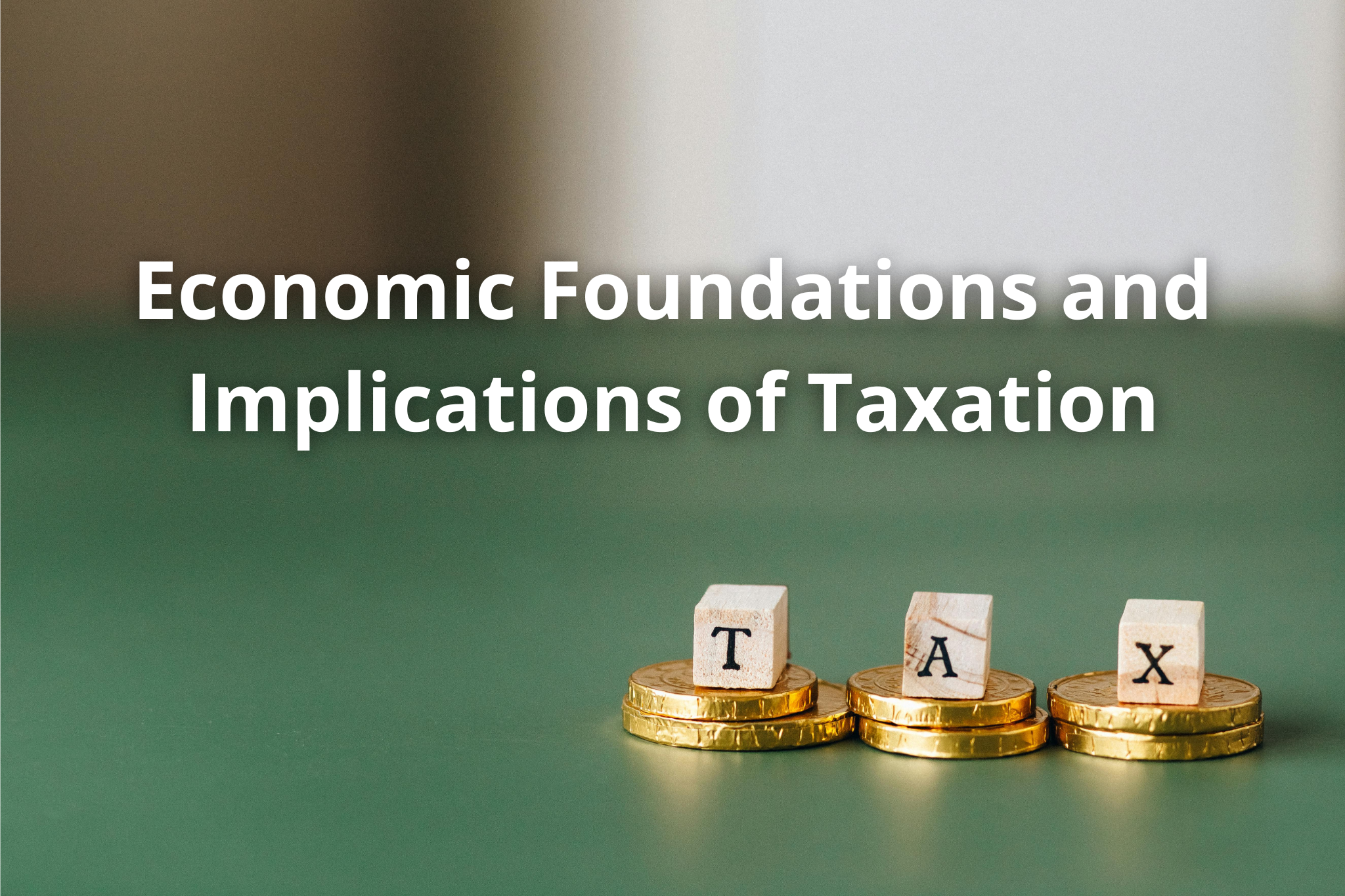
In the complex machinery of modern economies, the mechanisms for generating public revenue are as crucial as the systems of production and consumption. Governments require resources to build infrastructure, provide education and healthcare, and maintain law and order. These resources are predominantly acquired through a structured system of taxation. Understanding how taxes function, their historical context, and their economic impacts provides insight into their essential role in our society. In this essay, we will explore the principles behind taxation, its types, its effects on the economy, and contemporary issues related to tax policy.
Read also: A Simple Tax Guide for Teenagers
Historical Evolution of Taxation
Taxation has undergone significant transformations throughout history. Early forms of taxes were often simple tributes or levies to ruling elites or religious authorities. For example, in ancient Egypt, citizens paid taxes in the form of grain and livestock to support the Pharaoh’s administration. As societies evolved, tax systems became more sophisticated. The Roman Empire introduced a variety of taxes, including customs duties, land taxes, and taxes on goods and services, to fund its extensive public works and military expenditures.
The 19th century marked a pivotal period in the development of modern taxation systems. The United Kingdom implemented the first permanent income tax in 1842, which laid the foundation for contemporary tax structures. This era also witnessed the emergence of progressive taxation, where tax rates increase with the taxpayer’s income, aiming to reduce economic inequality and ensure a fairer distribution of wealth.

Types of Taxes
Taxes can be broadly categorized into direct and indirect taxes, each with distinct economic implications.
Direct Taxes:
- Income Tax: Levied on individuals and corporations based on their earnings. Typically progressive, income taxes ensure that those with higher incomes contribute a larger share to public finances, promoting equity and redistributing wealth.
- Corporate Tax: Imposed on the profits of corporations. This tax influences business investment decisions and can impact overall economic growth by affecting the capital available for reinvestment.
- Property Tax: Based on the value of owned property, such as real estate. Property taxes are often used by local governments to fund public services like education, transportation, and emergency services, ensuring community development and maintenance.
Indirect Taxes:
- Sales Tax: Collected at the point of sale on goods and services. While regressive—disproportionately affecting lower-income individuals—sales taxes are straightforward to administer and can generate substantial revenue for governments.
- Value-Added Tax (VAT): Applied at each stage of production and distribution of goods and services. VAT is effective in raising revenue due to its broad base and relatively low rates of evasion compared to other forms of taxation.
- Excise Tax: Targeted at specific goods, such as tobacco, alcohol, and fuel. These taxes serve dual purposes: generating revenue and discouraging the consumption of goods that can have negative social and environmental impacts.
Economic Theories on Taxation
Different economic theories offer varying perspectives on the effects and optimal structures of taxation.
Classical Economics: Grounded in the work of Adam Smith, classical economics emphasizes minimizing market distortions. Smith’s principles of taxation advocate for taxes that are proportional to the taxpayer’s ability to pay, certain and predictable, convenient to pay, and economical to collect.
Keynesian Economics: Developed by John Maynard Keynes, this theory highlights the role of fiscal policy, including taxation, in managing economic cycles. Keynesians argue for counter-cyclical tax policies, such as reducing taxes during recessions to stimulate demand and increasing taxes during economic booms to prevent overheating and inflation.
Supply-Side Economics: Advocates of this theory, including Arthur Laffer, argue that lower taxes can stimulate economic growth by increasing incentives for investment, production, and work. The Laffer Curve illustrates the idea that there is an optimal tax rate that maximizes revenue without discouraging economic activity.
Taxation and Economic Behavior
Taxes significantly influence economic behavior, affecting decisions related to consumption, saving, investment, and labor supply.
Labor Supply: Marginal tax rates on income can influence individuals’ decisions to work more or less. High marginal tax rates may discourage additional work effort, reducing the overall labor supply. However, the actual impact on labor supply can vary depending on other factors, such as the availability of work, wage levels, and individual preferences for leisure versus income.
Consumption: Sales and value-added taxes affect consumer behavior by increasing the cost of goods and services. Higher consumption taxes can reduce disposable income and lead to lower consumption levels, impacting economic growth. However, consumption taxes are often preferred for their simplicity and broad base.
Saving and Investment: Taxes on interest, dividends, and capital gains can influence saving and investment decisions. High taxes on investment income can discourage savings and reduce the funds available for investment in productive activities. Conversely, tax incentives for saving and investment, such as retirement account deductions, can encourage individuals to save more, promoting long-term economic growth.
Contemporary Issues in Tax Policy
Modern tax systems face several challenges and debates, including tax evasion, tax avoidance, and the balance between equity and efficiency.
Tax Evasion and Avoidance: Tax evasion is the illegal act of not paying taxes owed, while tax avoidance involves legally minimizing tax liability through various strategies. Both practices undermine the revenue base and fairness of the tax system. Governments must balance effective enforcement with creating a tax code that minimizes opportunities for evasion and avoidance.
Equity vs. Efficiency: Tax policy must balance the goals of equity (fair distribution of tax burdens) and efficiency (minimizing economic distortions). Progressive taxes are equitable but can potentially reduce economic incentives for high earners. Conversely, regressive taxes are less equitable but often more efficient in raising revenue. Finding the right balance is a central challenge for policymakers.
Globalization and Tax Competition: In an increasingly globalized economy, countries compete to attract businesses and investment through favorable tax policies. This competition can lead to a “race to the bottom,” where countries reduce corporate tax rates to unsustainable levels, undermining their revenue base. International cooperation and harmonization of tax policies are necessary to address these challenges.
Digital Economy: The rise of the digital economy presents new challenges for taxation. Traditional tax systems are often ill-equipped to handle the complexities of digital transactions and the allocation of profits among jurisdictions. Developing appropriate tax policies for digital businesses is an ongoing challenge for governments worldwide.
Conclusion
Taxation is a fundamental aspect of modern economies, serving as the primary source of government revenue and a tool for economic stabilization and wealth distribution. Understanding the principles, types, and impacts of taxes is crucial for informed economic analysis and effective policymaking. While taxes inevitably influence economic behavior, policymakers must carefully design tax systems to balance the goals of equity and efficiency, address contemporary challenges, and ensure sustainable public finances.
As the global economy continues to evolve, tax policy will remain a dynamic and critical area of focus for governments and economists alike. By continuously adapting tax systems to changing economic conditions and addressing emerging issues, societies can ensure that taxes fulfill their essential role in supporting economic development and public well-being.






